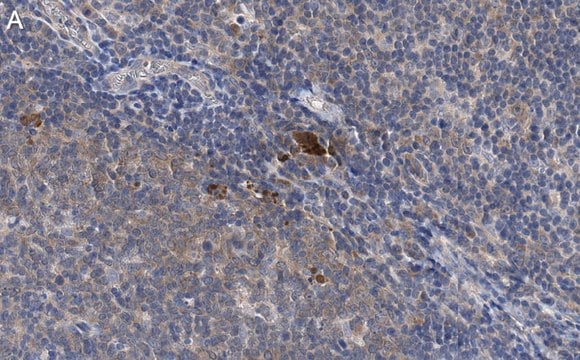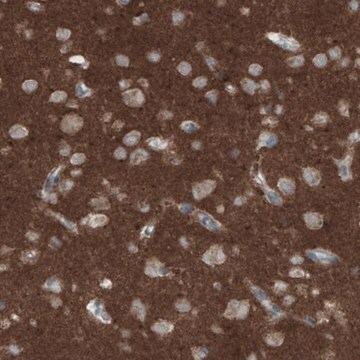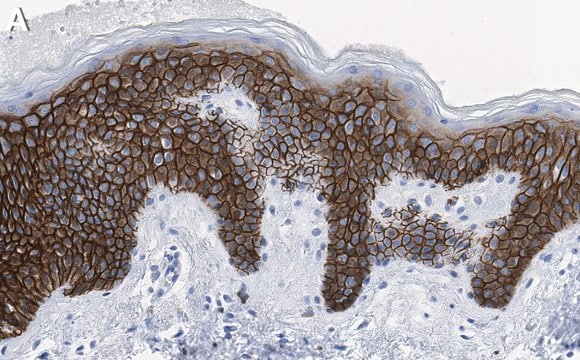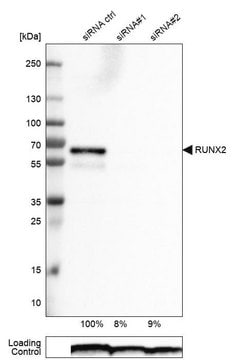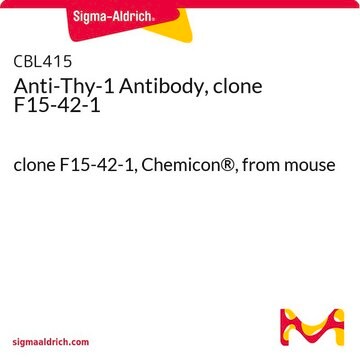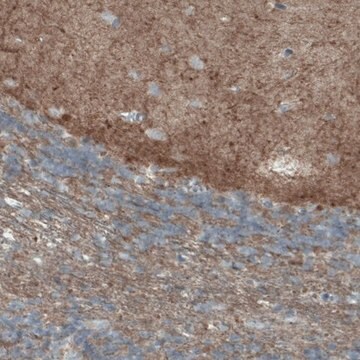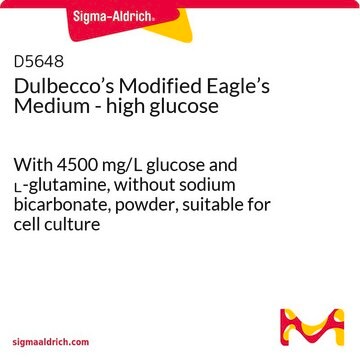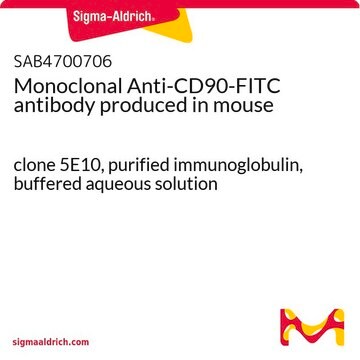SAB4200497
Anti-THY1 antibody, Mouse monoclonal
clone TH350, purified from hybridoma cell culture
Synonyme(s) :
Anti-CD90, Anti-CDw90, Anti-FLJ33325, Anti-Thy-1 T-cell antigen, Anti-Thy-1 antigen, Anti-Thy-1 cell surface antigen, Anti-thy-1 membrane glycoprotein, Monoclonal Anti-THY1 antibody produced in mouse
About This Item
Produits recommandés
Source biologique
mouse
Niveau de qualité
Conjugué
unconjugated
Forme d'anticorps
purified from hybridoma cell culture
Type de produit anticorps
primary antibodies
Clone
TH350, monoclonal
Forme
buffered aqueous solution
Poids mol.
antigen ~27 kDa
Espèces réactives
mouse, human, rat
Concentration
~1.0 mg/mL
Technique(s)
ELISA: suitable
flow cytometry: 20-40 μg/test using A549 cells.
immunohistochemistry: suitable
western blot: 2.0-4.0 μg/mL using NT2 total cell extracts.
Numéro d'accès UniProt
Conditions d'expédition
dry ice
Température de stockage
−20°C
Modification post-traductionnelle de la cible
unmodified
Informations sur le gène
human ... THY1(7070)
Description générale
Thy-1 cell surface antigen (THY1) is a glycoprotein that is expressed on the membranes of adult cells, mesenchymal stromal cells and cancer cells. It has a molecular weight of about 25-37kDa. The gene encoding THY1 is localized on human chromosome 11q23.3.
Spécificité
Immunogène
Application
- immunoblotting
- flow cytometry
- immunofluorescence
Actions biochimiques/physiologiques
Forme physique
Stockage et stabilité
Clause de non-responsabilité
Vous ne trouvez pas le bon produit ?
Essayez notre Outil de sélection de produits.
Code de la classe de stockage
10 - Combustible liquids
Classe de danger pour l'eau (WGK)
WGK 2
Point d'éclair (°F)
Not applicable
Point d'éclair (°C)
Not applicable
Faites votre choix parmi les versions les plus récentes :
Certificats d'analyse (COA)
Vous ne trouvez pas la bonne version ?
Si vous avez besoin d'une version particulière, vous pouvez rechercher un certificat spécifique par le numéro de lot.
Déjà en possession de ce produit ?
Retrouvez la documentation relative aux produits que vous avez récemment achetés dans la Bibliothèque de documents.
Notre équipe de scientifiques dispose d'une expérience dans tous les secteurs de la recherche, notamment en sciences de la vie, science des matériaux, synthèse chimique, chromatographie, analyse et dans de nombreux autres domaines..
Contacter notre Service technique